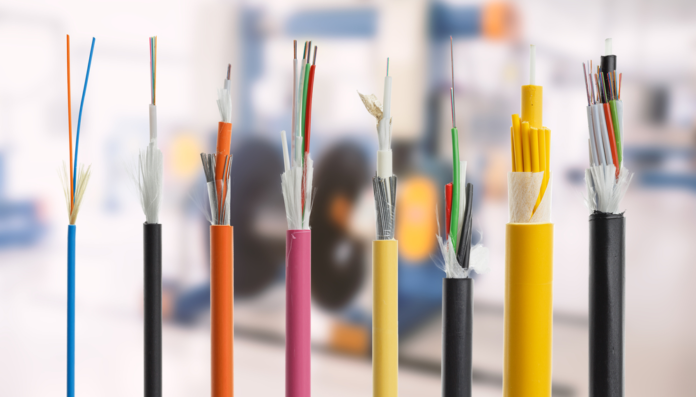A Joint Standing Committee on the Protection of Fiber Optic Cables was formed by the Ministries of Works and Communications, Innovation, and Digital Economy to address the ongoing problem of fiber optic cuts and damage brought on by road building and rehabilitation projects.
Telecommunications services throughout Nigeria have suffered greatly as a result of these interruptions.
The Permanent Secretary, Engr. Olufunso Adebiyi, and his counterpart at the Ministry of Communications, Innovation, and Digital Economy, Engr. Farouk Yusuf, inaugurated the Joint Standing Committee on Protection of Fiber Optic Cables on Tuesday, February 18, at the Ministry of Work’s Boardroom. Dr. Aminu Maida, the Executive Vice Chairman/Chief Executive Officer of the Nigerian Communications Commission, NCC, was present.
Key personnel from the two ministries and the NCC make up the Committee.
In order to restrict and avoid damage to Telecommunications Fiber Optic cables during road building or rehabilitation activities, the joint Standing Committee’s primary responsibility is to create and maintain clear channels of communication and coordination between the two ministries and the NCC.
During the Committee’s formation, Engr. Adebiyi gave it instructions to set up procedures to guarantee that deployed fiber optic cables sustain less damage from road construction and maintenance operations and vandalism, which has resulted in numerous instances of service interruption nationwide.
In addition to meeting regularly to discuss issues found, reach consensus on industry-wide solutions, establish standard engagement processes and procedures, and share monthly performance reports, he said the Committee will act as a coordinating body for all issues related to the protection of fiber optic cables before, during, and after the completion of road construction or maintenance activities.
In order to promote timely communication and information sharing among all stakeholders, he added, “They are also expected to develop an instant communication mechanism.”
He promised that the Ministry would make sure that fiber cable placement would be taken into account when the nation’s road networks are planned, designed, and built, and that ducts would be provided during construction.
Adebiyi added that the committee will coordinate with the telecom operators on all current and upcoming projects and work closely with all Federal Controllers of Works (FCW) to prioritize the task of safeguarding this sensitive infrastructure during the planning and execution phases of projects across the nation’s roads.
Fiber networks are the foundation of Nigeria’s digital economy, allowing the smooth delivery of both fixed and mobile broadband services necessary for national connectivity, economic growth, and technological innovation, according to Engr. Farouk Yusuf, who emphasized the importance of fiber optic cables to the nation’s economy in his remarks.
He pointed out that the Committee’s efforts are essential to preventing construction businesses’ operations from interfering with telecommunications services.
The EVC/CEO of NCC, Dr. Aminu Maida, emphasized the significance of the Committee’s mandate, noting that it has the potential to significantly reduce service disruptions across Nigeria’s telecommunications industry.
“This is a pivotal moment for the telecommunication industry and its customers. Fiber networks are the foundation of Nigeria’s broadband ecosystem, providing the essential high-capacity backhaul required to deliver ultra-fast 4G and 5G speeds, as these next-generation mobile technologies rely on fiber infrastructure to ensure low latency, high reliability, and seamless data transmission.
“Last year, we experienced over 50,000 fiber cuts incidents across the country of which around 30,000 were attributed to Federal and State Road construction activities. In the extreme, some of these incidents had led to major network outages like the February 2024 nationwide MTN network outage.
“A key contributor to the increasing number of fiber cuts attributed to road construction activities is the lack of an efficient handshake mechanism between road construction companies and operators of the fiber infrastructure.
“I am optimistic that the work of this Committee will lead to a significant reduction in fiber cuts attributed to road construction which would then reduce network outages, avoid unnecessary expenditure on repair works and reduce the need to put redundant routes in place to serve as alternatives whenever there are outages due to fiber cuts.
“This initiative is not just for the benefit of the telecommunications industry but for all Nigerians. Every time a fiber cut occurs, consumers experience service disruptions. The industry is forced to invest in costly redundancy measures, but if we can prevent these avoidable disruptions, operators can redirect resources towards network expansion and infrastructure improvement,” Maida stated.

